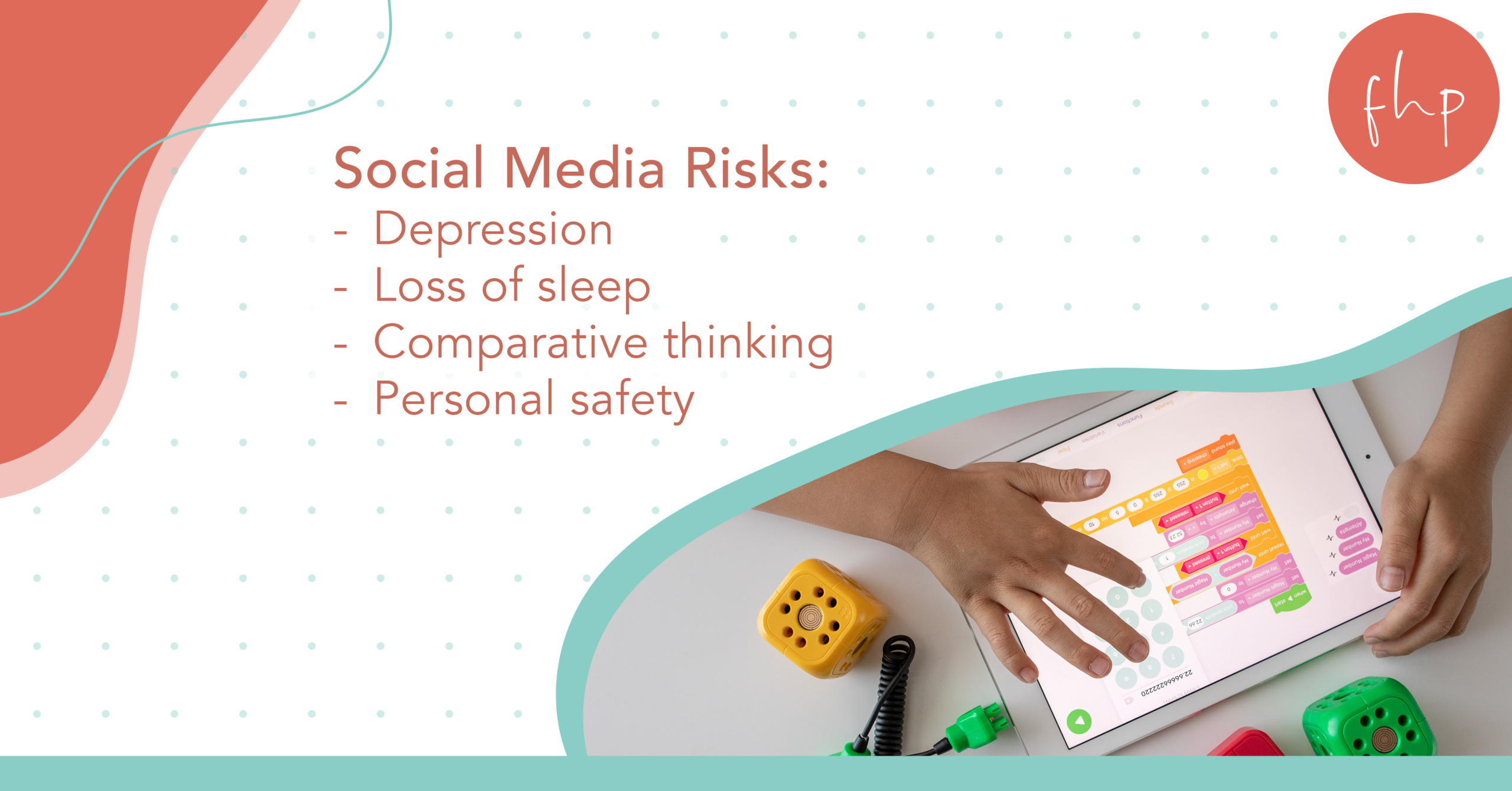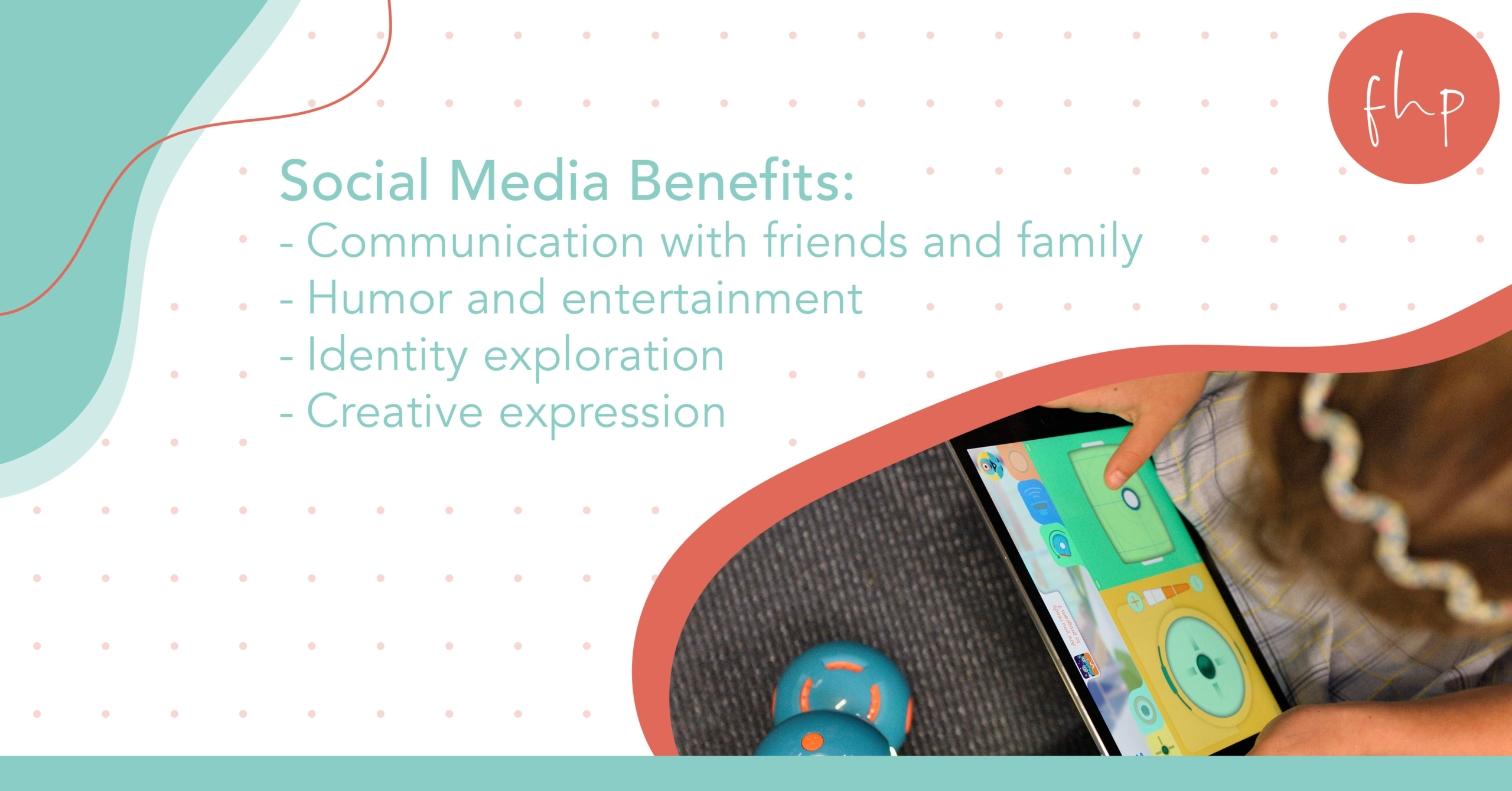Social Media and Mental Health: How to Help Your Child Develop Healthy Social Media Habits
In today’s world, children and teens are growing up in a digital age and are exposed to various types of devices. Social media influences how children and teens feel, learn, think, develop, and behave. It is inevitable for your child to be exposed to the online world, and at Fairhope Pediatrics, we encourage you to help your child form healthy social media habits that benefit their mental health.

Depression:
Facebook Depression, a new phenomenon proposed by researchers from the National Library of Medicine, is common for preteens and teens to develop as they spend a great deal of time on social media. This occurs when users see status updates, posts, or photos from people they follow that make them feel excluded or disconnected. The online world can be overwhelming and may trigger depression in youth. Clinical depression unrelated to online activity can be amplified with social media use and may lead to an increase in social isolation.
Loss of sleep:
Sleep is essential to a child’s overall health and development, but social media can negatively affect sleep quality. Over 60% of adolescents report using social media an hour before bed, causing shorter sleep duration, poor sleep quality, and daytime sleepiness. The impact of social media on sleep quality remains a risk for mental health concerns among the youth.
Comparative thinking:
Rumination is a common side effect of social media that creates an unhealthy pattern of comparative and anxious thinking. Comparative thinking is a difficult cycle for people with depression to break as it puts thoughts and worries on repeat. Children often compare themselves and their family to others on social media, which negatively influences their outlook and thinking.
Bullying:
About 10% of teens report being bullied on social media and many more are subjected to offensive comments. Social media can be a hub for spreading hurtful rumors, lies, and abuse that can leave lasting emotional scars.
Personal safety:
Pew Research Center reports 97% of American teens use social media every day. While most social media use is dedicated to talking to their friends, the youth are subjected to a variety of risks regarding their personal safety. Risks like child predators, identity theft scams, inappropriate content, and sharing posts and images that could regret later that should be taken seriously. It’s important for young teens and preteens to always know who they are talking to over social media – the person may or may not be who they say they are! Warn your teens to only accept a follow request if they know the individual personally to limit shared information.

Although the risks of social media are unnerving, it’s important to understand the benefits of social media to give your child guidance and provide them with the best practices they need to make their experience a positive one.
Humor and entertainment:
Kids of all ages can learn and appreciate different perspectives, worldviews, and opinions on social media to better understand the world around them and expand their knowledge on a variety of topics. With so many platforms, children can discover areas of interest and utilize social media for educational purposes.
Identity exploration:
For children who may not feel they connect with others in the community around them, social media is a great way to follow pages or influencers that share their ideas and interests. This gives them reassurance there are other people who they can relate to.
Creative expression:
Social media gives kids the opportunity to show their personalities and be creative by customizing their profile pages, photos, videos, and even modifications for video games. Kids who have a passion for photography, art, video production, music, or writing can use certain platforms to express themselves and showcase their talents.
When using social media in a healthy way, the benefits outweigh the risks! Explore the tips below and talk with your child on how they can use social media in a safe and positive way.

Tips to help create healthy social media habits for your child:
- Place consistent limits on media use and types.
- Monitor the type of media your child views.
- Avoid exposure to devices or screens one hour before bedtime.
- Plan media-free times together, such as family dinners.
- Create offline, unplugged locations in your home.
- Engage in family activities that promote well-being such as sports, reading, and talking.
- Set a good example by turning off the TV and putting your smartphone down.
Creating good social media habits can be difficult to navigate, but trial and error are key. All children have different needs, and it is rarely a one-size-fits-all solution. If you have concerns regarding your child’s social media wellness, please call our office at 251.928.5568 to schedule an appointment with one of our providers.


